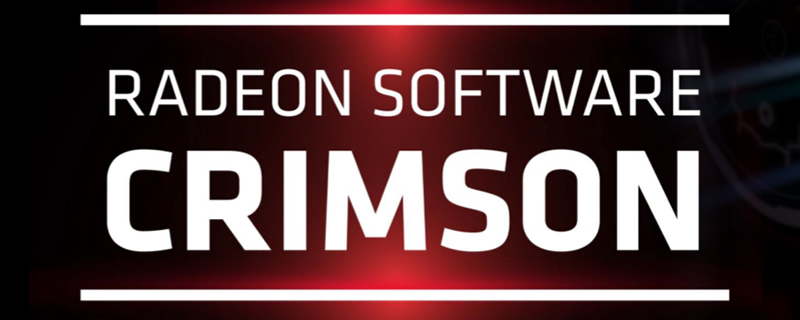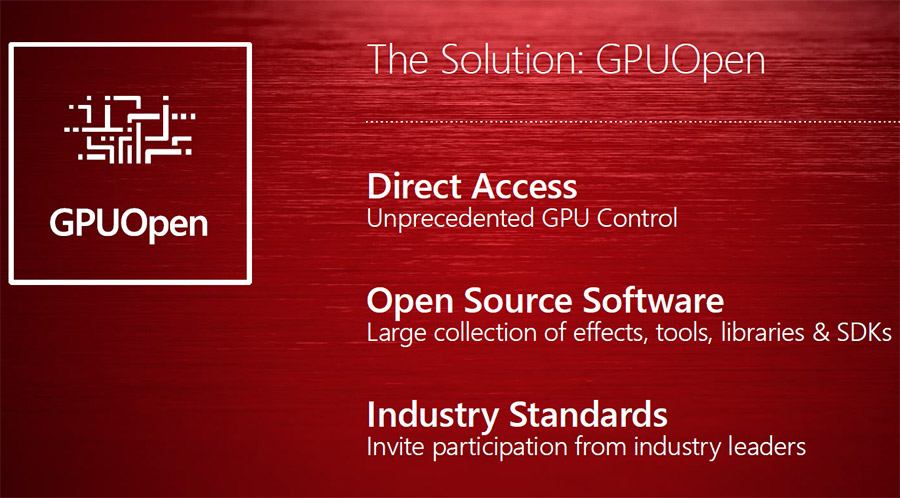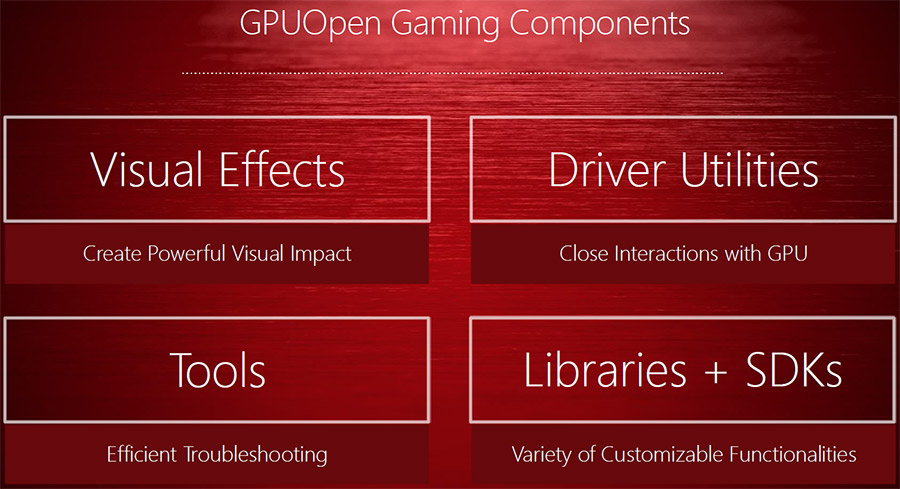AMD Officially Launch GPUOpen
AMD Officially Launches GPUOpen
Â
Nvidia’s GameWorks tools have for a long time been had a very bad reputation among PC gamers, being associated with badly optimized and buggy PC releases like Watch Dogs and Assassin’s Creed Unity and being blamed for giving AMD a performance disadvantage in titles, particularly in The Witcher 3 and more recently in Just Cause 3.Â
One of the many issues with Nvidia’s GameWorks was that many claimed that GameWorks was a “black box” that developers could use but not look inside, limiting their ability to improve or optimize the graphical tools, especially on AMD. Nvidia has denied this and some developers have access to the code, but until now this has been seen as a problems by both developers and gamers alike. Â
Â
Â
For a long time AMD has been saying that they have been looking into making an open source response to Nvidia’s GameWorks, a so-called “OpenWorks” that developers could use and access directly to improve upon it and easily optimize the effects for their particular game and the hardware it would be running on.Â
AMD has now announced GPUOpen, a set of tools that will give developers full control. This collection of open source effects, tools, libraries and SDKs has been created to allow developers to both get the best visuals out of their games and the best performance out of both AMD and Nvidia GPUs, as well as allow developers to share improve upon the Open Source software.
 Â
  The GPUOpen initiative provides access to a comprehensive collection of visual effects, productivity tools, and other content at no cost. Easily shareable and downloadable, GPUOpen enables developers to level-up code and unlock the full potential of software development.
Â
Â
AMD’s GPUOpen has been based on three principles, to provide full source code access to PC developers, giving them full control of GPUOpen technologies, to always remain fully committed to open source software and to remain active in the community, continually collaborating and sharing with developers. Â
Â
   The first is to provide code and documentation allowing PC developers to exert more control on the GPU. Current and upcoming GCN architectures (such as Polaris) include many features not exposed today in PC graphics APIs, and GPUOpen aims to empower developers with ways to leverage some of those features. In addition to generating quality or performance advantages such access will also enable easier porting from current-generation consoles (XBox One™ and PlayStation 4) to the PC platform.
The second is a commitment to open source software. The game and graphics development community is an active hub of enthusiastic individuals who believe in the value of sharing knowledge. Full and flexible access to the source of tools, libraries and effects is a key pillar of the GPUOpen philosophy. Only through open source access are developers able to modify, optimize, fix, port and learn from software. The goal? Encouraging innovation and the development of amazing graphics techniques and optimizations in PC games.
The third is a collaborative engagement with the developer community. GPUOpen software is hosted on public source code repositories such as GitHub as a way to enable sharing and collaboration. Engineers from different functions will also regularly write blog posts about various GPU-related topics, game technologies or industry news.
Â
Â
With GPUOpen now being officially live AMD developers now have the chance to integrate some AMD technologies into their games quickly and easily, offering developers full access to allow them to use AMD’s tools in whatever way they desire, opening up a whole range of possibilities.Â
With AMD hardware being found in most of today’s consoles AMD expects that plenty of developers would like to take part in AMD’s Open source initiative, but given how much market penetration that Nvidia’s competing GameWorks Libraries already have it many be too late for these tools to receive wide adoption.Â
Hopefully AMD will be continuing to actively update and improve upon their current set of GPUOpen technologies in the future, offering many more tools and effects for use with the DirectX 12 and Vulcan APIs.Â
Â
You can join the discussion on AMD officially launching GPUOpen on the OC3D Forums.Â
Â
@AMDRadeon have officially launched GPUOpen, AMD’s Open Source answer to Nvidia GameWorks. https://t.co/rViexpwTuR pic.twitter.com/sb34VCDo1I
— OC3D (@OC3D) January 26, 2016





